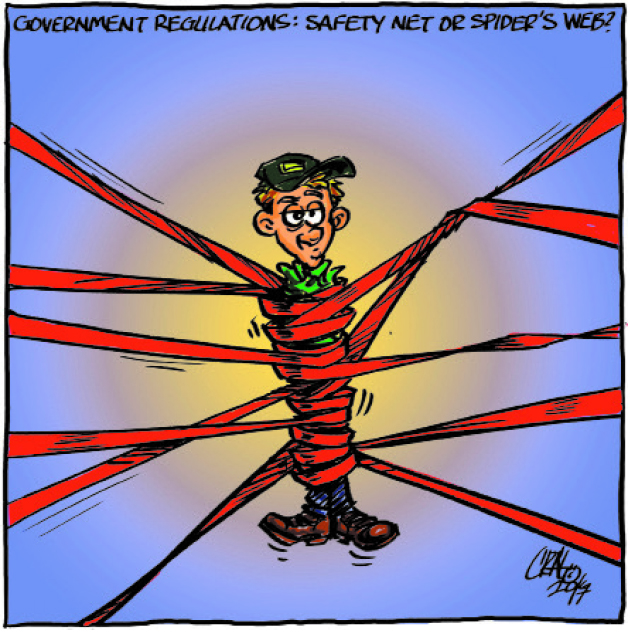The rapid fallout from Brazil’s meat scandal highlights the zero tolerance that importers have for any hint of danger when it comes to food.
A host of countries, including Canada, imposed restrictions on Brazil’s meat and poultry, and market valuations of the country’s major packers plunged by billions of dollars, leaving one to wonder why any meat company, indeed any food producer, would engage in underhanded dealings that would call into question its reputation for safety?
The situation also highlights the constant tension between the desire to let business be free of onerous government regulation while at the same time desiring that consumers be protected from unscrupulous or negligent operators who put dangerous food on the market.
Read Also

Government red tape fight proves to be uphill battle
Tets
Police dropped a bombshell on Brazil’s successful meat industry March 17 when they announced they were investigating an apparent widespread scandal in which government officials were bribed to approve the sale and export of rotten and contaminated meat.
That set off a cascade of slamming doors as China, Hong Kong, Japan, South Korea, the European Union, Saudi Arabia, Mexico, Switzerland and Canada announced partial or all-out bans on meat imports from Brazil, the world’s largest beef and chicken exporter and fourth largest pork exporter by volume.

Meat processing giants JBS and BRF saw their stock price swoon.
Brazilian politicians were shaken by the international reaction and stepped in to try to calm fears. Agriculture Minister Blairo Maggi suited up in sanitary white coveralls for the media to photograph him inspecting a spotless poultry plant. The government issued statements that blamed the problem on the professional misconduct of a small number of workers rather than a “widespread malfunction of the Brazilian system.”
China, Egypt and Chile have since lifted their bans, but Brazil’s meat industry has been damaged.
It is mystifying any time companies try to get around safety regulations just to collect the small profits from selling a tainted product.
It endangers the huge and incalculable value of reputation and good will of the directly involved business and perhaps of the whole industry.
And it weakens arguments that the food business needs less regulation and monitoring rather than more.
A lot of people in agriculture believe that there is too much government red tape in their lives, tying them up and inhibiting their productivity and growth.
In agricultural circles, there is a lot of support for initiatives such as Manitoba’s Red Tape Reduction and Government Efficiency Act.
In the United States, agricultural leaders applauded when President Donald Trump signed executive orders to repeal and simplify regulations and to eliminate two old regulations for every new one brought in.
We are all for reducing bureaucracy, simplifying regulatory language and rational harmonization of regulation at each level of government and even across national borders.
However, when it comes to rules and regulations that aim to protect the public, such as ensuring that food is safe, then great care must be employed.
Thoughtless rule slashing to win political favour could endanger the public and make possible scandals that compromise the type of spotless reputation needed to build market share in this global economy.














